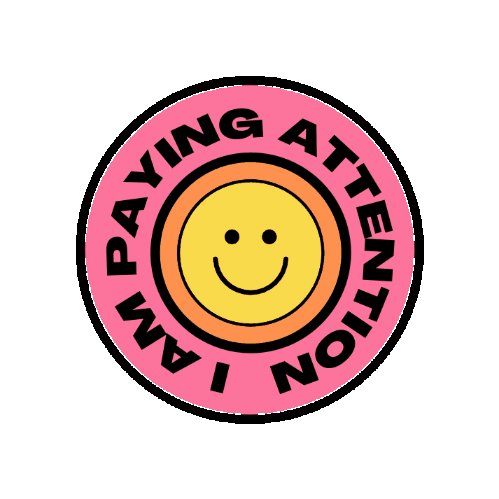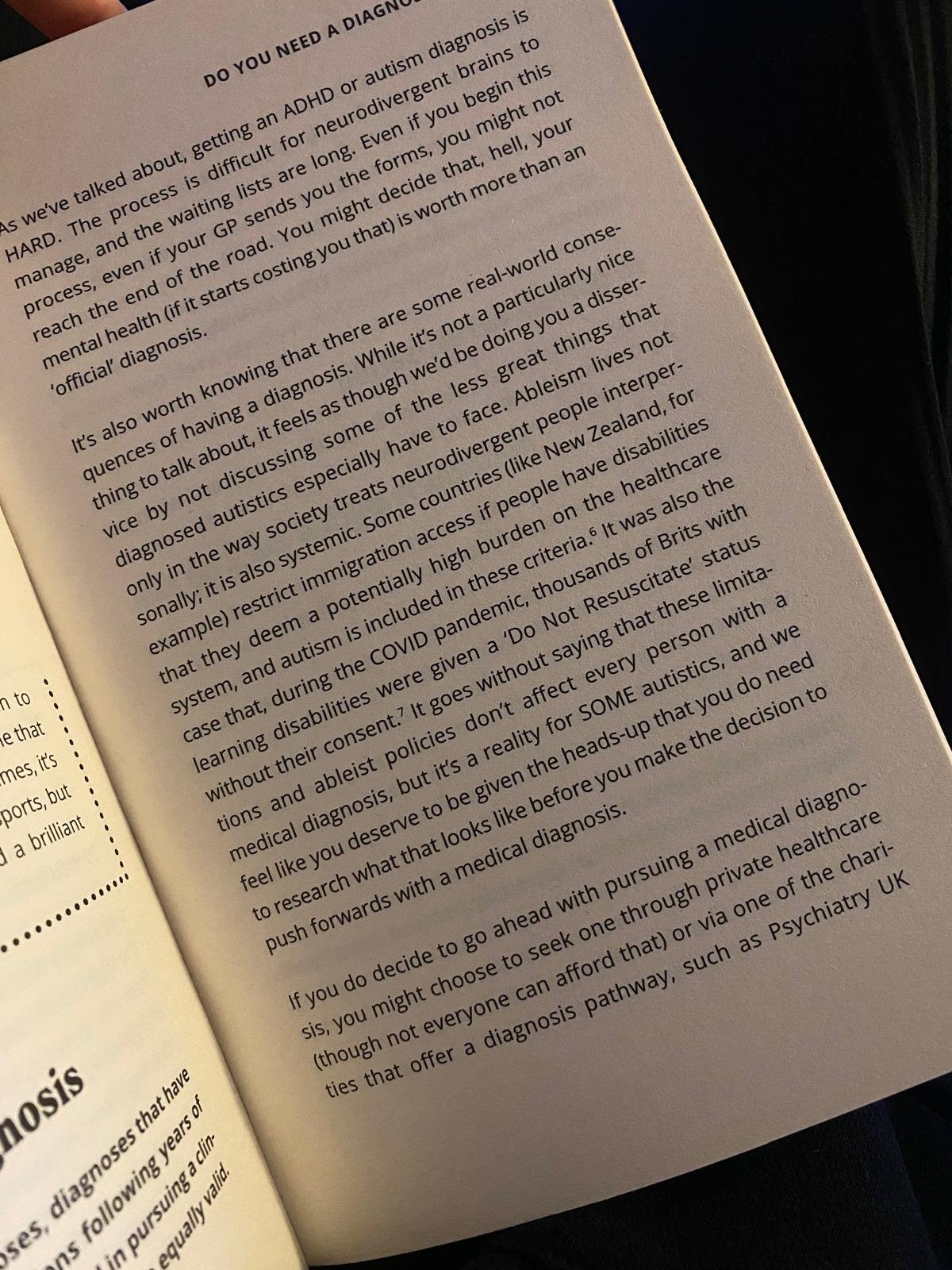A call for more critical thinking & less ignorance around the discussion of self diagnosis.
Before we dive into making our points, let’s begin by asking you a question..
Why do you think people feel the need to self diagnose in the first place?
Now, pause before you answer. Remember, if understanding self diagnosis doesn’t immediately make sense to you, let us (politely) remind you that we don’t all share the same life experiences.
Ok, now let us give you another angle for a second. Forget labels or diagnosis processes (just briefly), and focus only on the human element of this experience.
Often, the people self diagnosing things like ADHD or autism are experiencing:
Years of struggling in education systems
Years of trying desperately, but failing to stay in employment
Chronic feelings of inadequacy (because they can’t manage things everyone else around them can)
Friends, family members, or their cultures maybe not understanding their struggles
Medical professionals not providing adequate care (maybe due to things like discrimination)
Truthfully, that list could go on for a while. It’s long.
When you look at that list, do you see the amount of pain, dismissiveness, and desperation? Do you see how many years of poor mental health that is to deal with?
For many people, it often starts at school. The way our education system is set up doesn’t cater to neurodivergent brains.
In fact, it excludes them. Tight curriculums, limited funding and a lack of support puts neurodivergent children at an instant disadvantage.
From the first moment a child feels stress over going to school, an environment not set up for them, to being ‘punished’ for their neurodivergent traits – the feelings of inadequacy and not being ‘good enough’ start to set in..
Before you know it, that child’s already learning that they don’t fit in as they ‘should’.
It’s from this moment onwards that so many neurodivergent children learn to internalise their neurodivergence. It can end up presenting as anxiety, ‘misbehaviour’ or school refusal (to name a few).
If a child even makes it through primary and secondary school (with over eighty percent of dyslexic people leaving school undiagnosed), it unfortunately doesn’t get much better in higher education.
“2.4% of the UK student population are diagnosed with autism, and less than 40% of these people complete their university education”
One of the many terrifying things is that if you decide to take the university route, you’re met with even LESS structure and access to support.
And if the support *is* available? You better know your brain and be able to communicate what your needs are!
Suddenly, you’re not only responsible for your timetable, you’re also maybe even living alone for the first time. For many neurodivergent people who were fortunate to even make it this far, this is where the cracks start to show.
If you’re completely unaware that the source of your struggles are related to neurodivergence, how do you even *begin* to navigate life as an adult without any of the appropriate strategies, tools or support required?
Despite repeatedly trying to access support, the only options offered to many people struggling are either antidepressants or anti-anxiety medication.
This understandably doesn’t always fix things, and often leaves neurodivergent adults looking for ways to cope without support in an attempt to keep going.
When people don’t get access to the support they need, it often shows up in other ways:
increased vulnerability to violence and abuse
poorer mental health
increased risk of substance misuse
societal stigma and labelling
increased likelihood of exclusion from education
higher unemployment rate
This is too often the beginning of a slippery slope for many neurodivergent people.
When we look at all the factors and statistics, it’s easy to see how many children and adults are being failed by a system not set up to support them.
(image description: blurry pastel rainbow background with a mind map titled ‘why is intersectionality crucial when we talk about disability? there are words coming off it with their own arrows. the words read: culture, ethnicity, religion, class, disability, sexuality, race, gender and age.)
But what if information about different neurotypes were more readily available without the stigma?
What if we were encouraged to learn more about the natural variation in our brains?
What if the systems we grow up in were designed for every brain?
The medicalisation of neurodivergence means that the information is generally not widely available UNLESS you know that what you ‘need’ is to seek a medical diagnosis..
But due to the way our medical systems are set up, we often have to know what’s ‘wrong’ in the first place to even get anywhere, particularly if you’re someone that the diagnostic criteria excludes.
There are no lab tests for being autistic, so doctors rely on communication and studying behaviour.. but where does that leave us when even the doctors themselves aren’t fully equipped to deal with the many variations in presentation – or the ability to recognise things like masked autistic traits?
Gaining access to a medical diagnosis is not equally accessible across the board. It is *truly* not as simple as “if you were autistic/ADHD, you’d get a medical diagnosis, no problem”.
For example; the racism deeply embedded within our healthcare systems is absolutely clear to see.
“According to a 2018 study, researchers reviewing more than 4,100 medical textbook images found that just 4.5% showed dark skin tones. Only 18% of medical images from The New England Journal of Medicine depicted nonwhite skin, according to a 2021 analysis.”
– from this article: https://www.jnj.com/helping-bring-diversity-in-medical-education-imagery
How can we *possibly* trust that everybody has equal access to the same diagnoses when so many groups of people are underrepresented in the very teaching of the medical professionals we’re supposed to have full faith in?
And that’s if you actually WANT a medical diagnosis – since the beginning of human life, there has been neurodiversity, it’s only very recently that it’s now pathologised and medically diagnosed.
What we’re urging you to consider is that there are nuances to every topic – and whilst we’re *not* suggesting that videos that imply things like ‘not liking the big lights being on = you MUST be autistic’ aren’t harmful..
There ARE a large amount of people that don’t have access to support. And those people are already struggling enough.
So, maybe instead of doubting individuals who’ve spent years desperately trying to figure out why they’re struggling – why don't we instead spend that energy thinking critically about *why* so many people are struggling?
If there was less focus on the medical diagnosis itself, and more focus on making this information accessible and openly available from a young age – without the stigma – perhaps we’d see neurodivergent people less traumatised, able to pursue their aspirations, live peacefully, learning in ways that suit them, being treated equally in workplace settings (and beyond) and *not* finding themselves struggling to simply survive.





